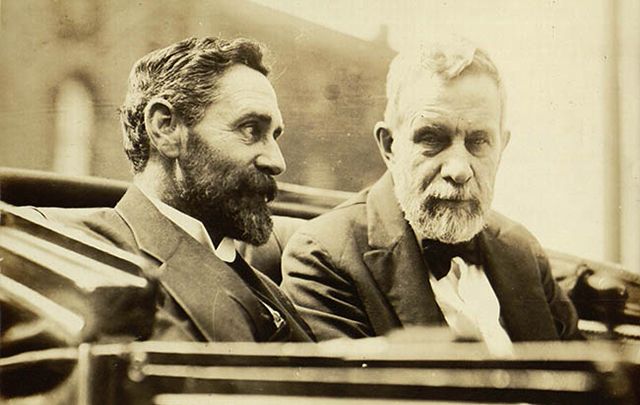One Bold Deed of Open Treason: the Berlin Diary of Roger Casement 1914-1916
edited by Angus Mitchell (Merrion Press, €19.95pb / €70.00hb)
W. J. McCormack
A lamentable feature of this year’s 1916 commemorative programme has been its failure to establish comprehensive and reliable editions of the insurrectionary leaders’ writings in which “the mind of the Rising” might be found once and for all.
In the past, only James Connolly had been reasonably well served in this regard – by the trade union movement, not by government or commerce. Nor was Roger Casement neglected, though the results are uneven, incomplete and quarrelsome. Among contending executors, Angus Mitchell is only the most tenacious.
His most recent contribution, a new edition of Roger Casement’s notes of his activities in Berlin before the Rising, amply demonstrates the problems involved. To some extent, he is concerned to unscramble a badly printed 1922 Munich edition. First, he contributed two portions of the material now collected in Field Day Review 8 in 2012.
Passages
However, “in order to create a reader friendly text, certain passages have been edited out and the overall volume of words reduced by approximately 20,000 words” (p.18). About 90 omissions are indicated by ellipses (. . .). The material never constituted a continuous single diary, but is made up of stops and starts, including “a bridging entry” (pp.165-178) covering the eight months from late March to early December 1915.
Casement was profoundly depressed for much of the period, disillusioned by German responses to his ‘dreams’, a term often repeated. He reprimanded Joseph Plunkett for notions of “criminal stupidity” (p.167).
Within this uneven and at times fascinating material, ‘My Journey to the German Headquarters at Charleville’ covers a week in November 1914 when Casement’s hopes were still high.
Headquarters lay in occupied territory; the diarist’s observations of carnage in Belgium and northern France provide an insight into his tortured comparison of violence in colonial west Africa and violence inflicted on a colonial European state and people (“these betrayed people” as he called Belgians whom he saw by the roadside, p.64). In his introduction, Mitchell raises the issue of German atrocities. Alas he does not pursue it.
It is clear that what Casement saw undermined his confidence in the Kaiserreich as liberator of Ireland. “Baron von Stumm spoke perfect English” (p. 55). He believed that the war would not last long. “And here a trenchant phrase was uttered . . . ‘What we hold we will keep’!”
Casement thought that “the prospect it offers is, indeed for Belgium and France a dreadful one” (p.57). Departing Charleville in the German limo, he noted the ruined outskirts, “often a new source of regret”, this latter phrase indicating Casement’s sustained preoccupation with what he had seen and heard.
Attempts to square the circle, by trusting a practiced invader to liberate, boil down to condemnations of Britain – it is Britain who betrayed the Belgians, ruined their outskirts and raped their women. Comparisons of Leopold II (“the Rubber King”) with the current monarch (the saintly Albert) leads to a climactic impasse. “Criminal as he was, Leopold II would never have landed his country in the awful plight this morally better King Albert has placed it in” (p.64).
Angus Mitchell’s introduction and apparatus raise other concerns. On at least two occasions (pp.221, 231), J. (or John) McG in Casement’s text is mis-identified as Joseph McGarrity where John McGoey is clearly intended. What can Mitchell possibly mean by “this conspiracy between Casement and the British government” (p.4)? In what muddied sense was Casement a “liaison officer and diplomat between Berlin and the US” (p. 3)? How could Michael Collins (died 1922) have “opened up a file in the Department of the Taoiseach” (established in 1938) (p.17)?
And consider this footnote to Mitchell’s Field Day version, now curiously omitted from the new version: “Casement’s decision to use faked letters and diary entries in his misinformation strategy against the British Foreign Office is questionable to say the least, in the light of the campaign of counter-misinformation launched by the British secret services at the time of his trial.” (see Field Day 8, p. 26). The editor now says even less.
If a new government were to enable a proper edition of Casement’s writings, then the material upon which the present book draws would have to be edited afresh, as would much else. What we have here and now, we do not wish to hold.



